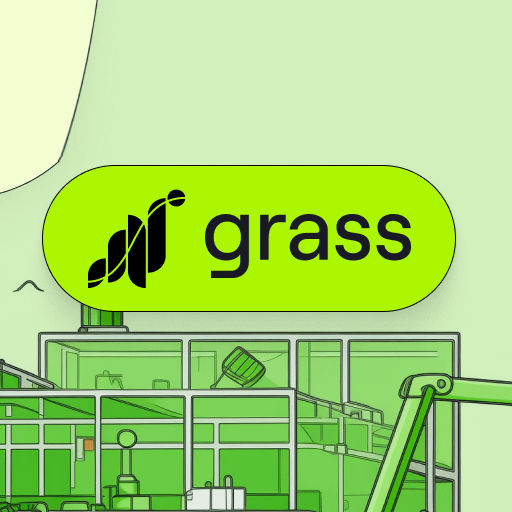Grass has unveiled ambitious plans for this year after experiencing significant growth in 2024. With over 4.36 billion data entries and activity across 190 nations in the past year, the DePIN project built on Solana’s network sets its sights on expanding its decentralized data infrastructure.
Advancing AI Integration
Grass’s roadmap emphasizes strengthening its position in the AI data marketplace. The platform leverages unused internet bandwidth from millions of users and plans to enhance its data collection and processing capabilities. Their network of user devices has proven effective in gathering information through residential IPs, bypassing traditional data access restrictions while maintaining transparency.
Additionally, the protocol’s unique Sovereign Data Rollup architecture will see improvements throughout 2025. This system, which includes validators, routers, and nodes, ensures data integrity through blockchain verification. The platform aims to transition from a centralized to a fully decentralized validator setup, marking a significant evolution in its infrastructure.
Grass Network Growth and Token Utility
The GRASS token, which has stabilized around $2.79 with a market capitalization close to $680 million, plays a central role in the platform’s expansion plans. As a result of anticipated network growth and new partnerships, analysts project a potential price range between $5.00 and $6.50 for 2025.
Community engagement remains a priority, with plans to enhance the reward system for bandwidth contributors. The current model, where users earn points convertible to GRASS tokens, will see additional incentives through expanded governance rights and staking opportunities.
Technical Evolution and Market Impact
The platform’s VALID dataset, created in partnership with Ontocord and LAION, will undergo further development. This multimodal collection of 30 million audio snippets, images, and text serves as a foundation for AI model training and represents a significant resource for developers.
Grass aims to strengthen its position against traditional data monopolies. Their approach challenges existing Web2 giants by offering a fairer data marketplace model where participants receive rewards for their contributions. The protocol’s focus on transparent data collection, verified through zero-knowledge proofs, sets it apart in the growing AI infrastructure space.
Moreover, the roadmap also addresses key technical challenges, including the transition to complete decentralization. This shift requires careful navigation of regulatory requirements while maintaining the network’s efficiency in processing over 4,500 transactions per second.
Grass’s evolution presents new opportunities for developers and AI labs. The platform’s commitment to providing accessible, high-quality data could further bridge the gap between large labs and smaller AI developers. Their continued focus on secure data handling and provenance tracking through blockchain technology aims to solve critical issues in AI training data verification.
As the digital asset landscape evolves, Grass’s roadmap positions the project at the intersection of AI and decentralized infrastructure. All in all, their approach to combining bandwidth sharing with AI data processing could set new standards for decentralized physical infrastructure networks in 2025 and beyond.













